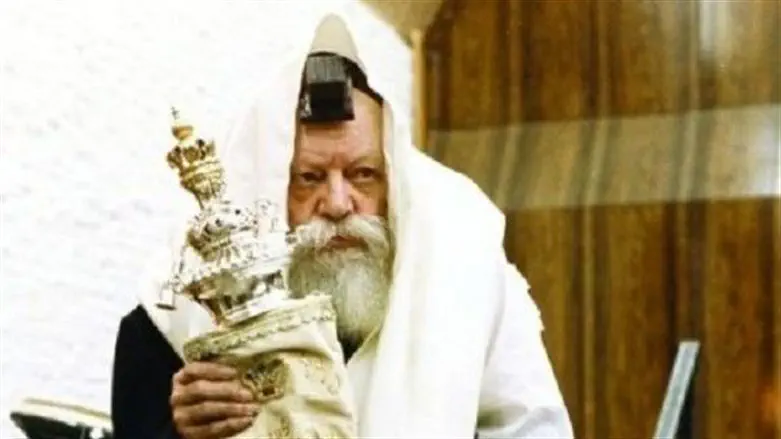

Tanya/ Iggeres Ha’Kodesh - The Holy Epistle, Epistle 15, Class 7
_____
Having dealt with the middot, the seven emotive attributes of the soul, the Alter Rebbe now proceeds to discuss the intellective attributes which give birth to them.
The source and root of these internal and external emotive attributes,
וּמְקוֹר וְשֹׁרֶשׁ מִדּוֹת אֵלּוּ, הַפְּנִימִיּוֹת וְהַחִיצוֹנִיּוֹת,
is the ChaBaD—an acronym for the intellectual faculties of chochmah, binah, and daat—of one’s soul,
הוּא מֵחָכְמָה־בִּינָה־דַּעַת שֶׁבְּנַפְשׁוֹ,
for a person’s emotive traits are in proportion to his intellect.
כִּי לְפִי שֵׂכֶל הָאָדָם – כָּךְ הֵן מִדּוֹתָיו,
This is empirically evident; with a child, for example, whose ChaBaD are in a state of pettiness, all his emotive traits, too, relate to insignificant things, and as he matures in age and understanding, his emotive traits correspondingly aspire to worthier goals.
כַּנִּרְאֶה בְּחוּשׁ, שֶׁהַקָּטָן, שֶׁהַחָכְמָה־בִּינָה־דַּעַת שֶׁלּוֹ הֵן בִּבְחִינַת קַטְנוּת – כָּךְ כָּל מִדּוֹתָיו הֵן בִּדְבָרִים קְטַנֵּי הָעֵרֶךְ.
With adults, too, the emotive traits develop in proportion to the intellect, for “According to his intelligence is a man praised.”48
וְגַם בִּגְדוֹלִים "לְפִי שִׂכְלוֹ יְהוּלַּל אִישׁ",
Since the term “man” (איש) is an appellative for the emotive traits (cf. the verse, “As is a man, so is his gevurah”49), the previously quoted verse is teaching us that a person’s emotive traits are praiseworthy in proportion to the stature of his ChaBaD.
For the extent of his love and kindness corresponds to the extent of his wisdom,
כִּי לְפִי רוֹב חָכְמָתוֹ – כָּךְ הוּא רוֹב אַהֲבָתוֹ וְחַסְדּוֹ.
and all his other internal and external traits likewise have their source in his ChaBaD.
וְכֵן שְׁאָר כָּל מִדּוֹתָיו פְּנִימִיּוֹת וְחִיצוֹנִיּוֹת, מְקוֹרָן הוּא מֵחָכְמָה־בִּינָה־דַּעַת שֶׁבּוֹ.
Most important to the development of the spiritual emotions is one’s daat, which derives from one’s chochmah and binah.
וְהָעִיקָּר – הוּא הַדַּעַת שֶׁבּוֹ, הַנִּמְשָׁךְ מִבְּחִינַת הַחָכְמָה וּבִינָה שֶׁבּוֹ,
A thinker first grasps the essence of a concept through the seminal flash of illumination afforded by his faculty of chochmah; he next understands it fully by means of the analysis and amplification which are the function of his faculty of binah; ultimately, he must immerse himself in concentration on the concept, binding and unifying himself with it to the point that—beyond mere intellective comprehension—he also senses and experiences it with his faculty of daat.
It is this faculty that is critical to the development of his middot, such as the spiritual emotions of love and awe of G‑d, for daat provides them with their substance and vitality, as explained in Part I, ch. 3.
This is readily observable, for the differences between the emotive traits of various people corresponds to the differences in their respective degrees of daat.
כַּנִּרְאֶה בְּחוּשׁ, כִּי לְפִי שִׁינּוּי דֵּעוֹת בְּנֵי אָדָם זֶה מִזֶּה כָּךְ הוּא שִׁינּוּי מִדּוֹתֵיהֶם.
Now, all this—the above mentioned effect of the emotive traits upon the resultant teaching or influence—is only by way of allegory and does not provide a completely true picture of the sefirot as they exist within man’s soul,
וְהִנֵּה, כָּל זֶה הוּא רַק עַל דֶּרֶךְ מָשָׁל לְבַד,
for all this applies to the rational soul, which is the lower one in man, and derives from kelipat nogah.
כִּי כָּל זֶה הוּא בַּנֶּפֶשׁ הַשִּׂכְלִית הַתַּחְתּוֹנָה שֶׁבָּאָדָם, הַבָּאָה מִקְּלִיפַּת נוֹגַהּ.
This “lower soul” naturally inclines to “lower” (i.e., corporeal) matters so that even its intellect goes only as far as understanding the composition, and so on, of mundane things. For although the kelipah, which is the source of this soul, is kelipat nogah, a kelipah whose darkness is relieved by a ray of good, nevertheless, it is wholly bound up with mundanity.
But in true fact, with regard to [the sefirot in] the higher, Divine soul, which is a “part of G‑d above,”50
אַךְ בֶּאֱמֶת לַאֲמִיתּוֹ, בַּנֶּפֶשׁ הָעֶלְיוֹנָה הָאֱלֹהִית, שֶׁהִיא "חֵלֶק אֱלוֹהַּ מִמַּעַל",
all the internal and external attributes are [directed] to G‑d alone: the Divine soul is concerned with spiritual things alone so that both its (internal) love and (external) chesed are concentrated purely on G‑dliness.
כָּל הַמִּדּוֹת, פְּנִימִיּוֹת וְחִיצוֹנִיּוֹת, הֵן לַה' לְבַדּוֹ.
____